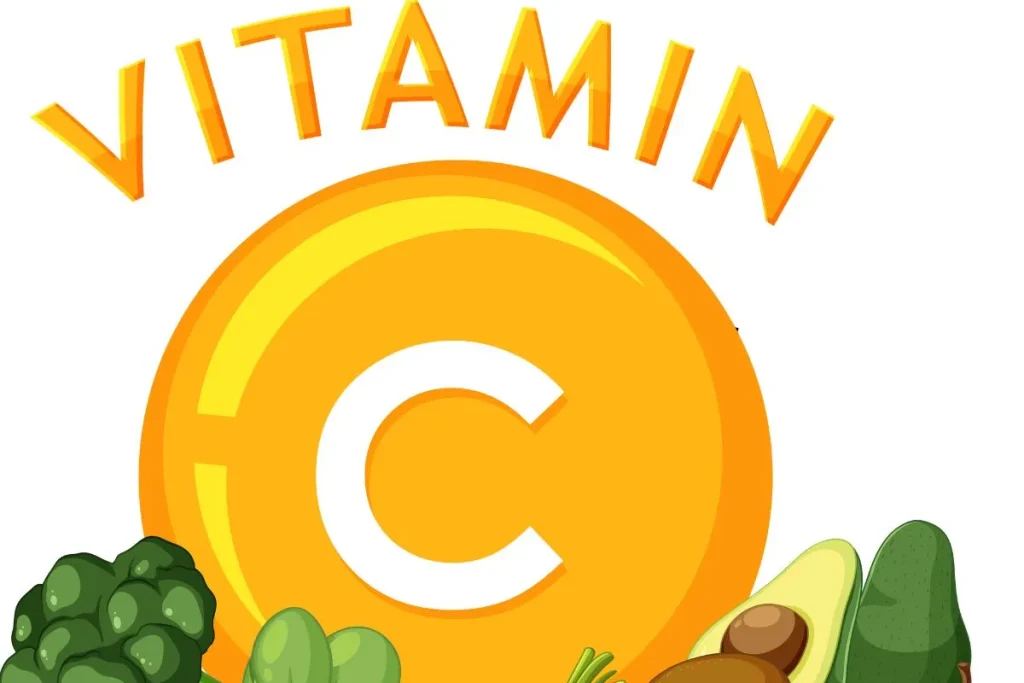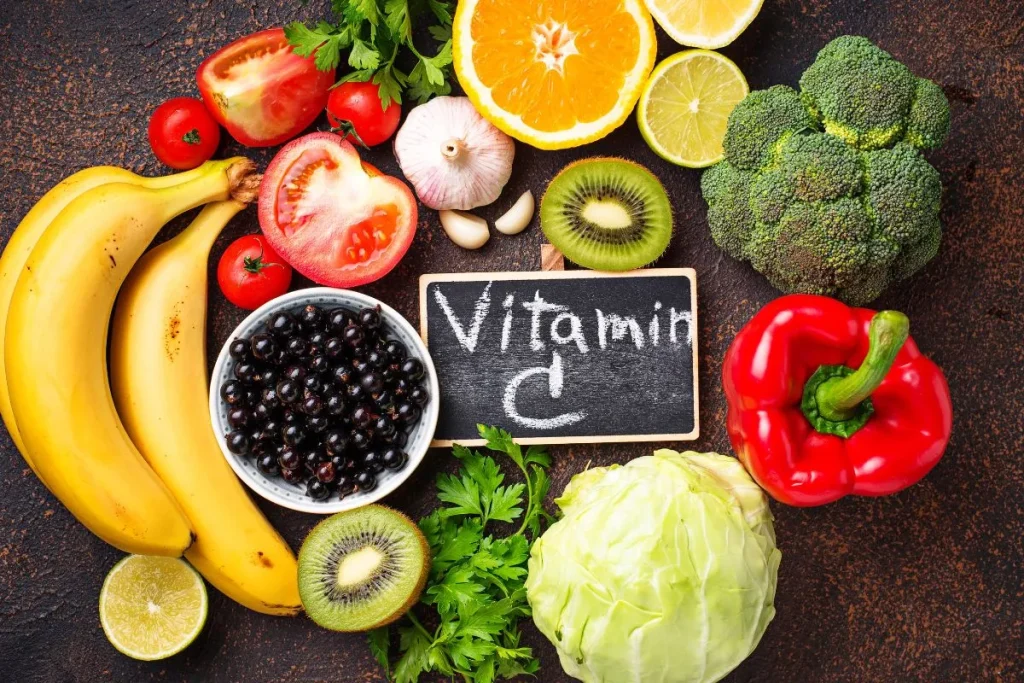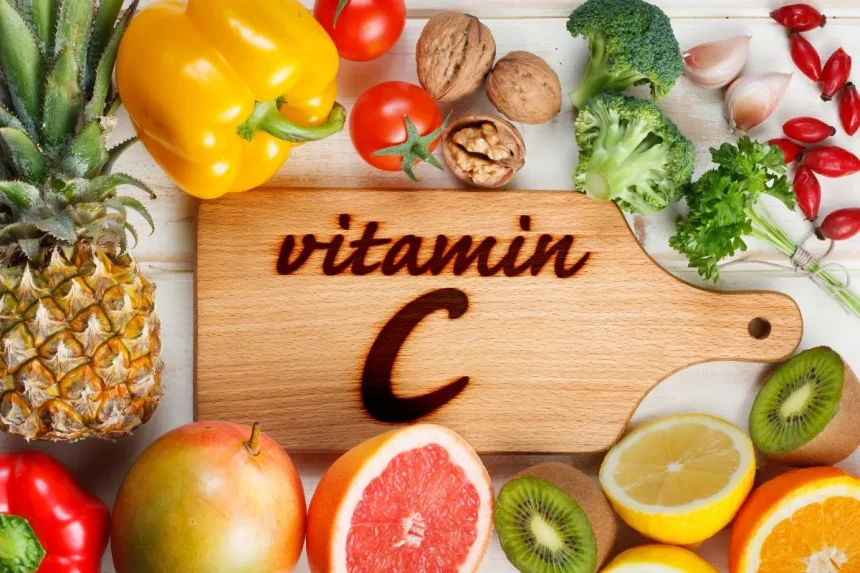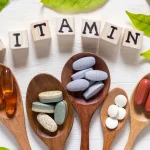Vitamin C, also known as ascorbic acid, is a vital nutrient renowned for its health benefits. This powerful antioxidant is essential for various bodily functions, from boosting the immune system to promoting skin health. In this article, we will explore the numerous benefits of Vitamin C, its role in maintaining optimal health, and the best dietary sources to ensure you meet your daily requirements.
What is Vitamin C (Ascorbic Acid)?
Vitamin C, or ascorbic acid, is a water-soluble vitamin that the body cannot produce on its own. Therefore, it must be obtained through diet or supplements. As an antioxidant, Vitamin C helps protect cells from damage caused by free radicals, which are harmful molecules that can lead to chronic diseases and aging.
Health Benefits of Vitamin C

- Boosts Immune System One of the most well-known benefits of Vitamin C is its ability to enhance the immune system. Vitamin C stimulates the production of white blood cells, which are crucial for fighting infections. It also strengthens the skin’s barriers, making it more effective in protecting against pathogens.
- Promotes Skin Health Vitamin C is vital for the synthesis of collagen, a protein that helps maintain the skin’s elasticity and firmness. It also helps repair damaged skin and reduces the appearance of wrinkles. Moreover, Vitamin C’s antioxidant properties protect the skin from oxidative stress caused by UV rays and pollution.
- Enhances Iron Absorption Vitamin C improves the absorption of non-heme iron, the type of iron found in plant-based foods. This is especially beneficial for vegetarians and individuals with iron deficiency anemia, as it helps prevent and treat this condition.
- Reduces Risk of Chronic Diseases As a potent antioxidant, Vitamin C helps reduce inflammation and oxidative stress, which are linked to chronic diseases such as heart disease, hypertension, and cancer. Regular intake of Vitamin C has been associated with a lower risk of these conditions.
- Supports Cardiovascular Health Vitamin C helps maintain healthy blood vessels and reduces the risk of developing cardiovascular diseases. It lowers blood pressure, reduces LDL cholesterol levels, and improves endothelial function, which is essential for proper blood flow.
- Aids in Wound Healing Due to its role in collagen production, Vitamin C is crucial for wound healing. It helps in the formation of connective tissues and speeds up the healing process for cuts, abrasions, and surgical wounds.
- Protects Eye Health Vitamin C plays a role in protecting the eyes from oxidative damage. It reduces the risk of cataracts and age-related macular degeneration, two common causes of vision loss in older adults.
Sources of Vitamin C

Vitamin C is abundantly found in various fruits and vegetables. Here are some of the best dietary sources:
- Citrus Fruits Citrus fruits like oranges, lemons, limes, and grapefruits are excellent sources of Vitamin C. A single orange can provide more than 100% of the recommended daily intake (RDI) of Vitamin C.
- Berries Strawberries, blueberries, raspberries, and blackberries are rich in Vitamin C. These fruits not only provide a high amount of ascorbic acid but also offer additional antioxidants that support overall health.
- Kiwi Kiwi is another fruit that is packed with Vitamin C. One medium-sized kiwi can supply about 71 mg of Vitamin C, which is almost the entire daily requirement.
- Bell Peppers Red, green, and yellow bell peppers are among the highest vegetable sources of Vitamin C. One cup of chopped red bell pepper provides about 190 mg of Vitamin C, which is more than twice the RDI.
- Cruciferous Vegetables Vegetables such as broccoli, Brussels sprouts, and cauliflower are rich in Vitamin C. These veggies also contain fiber, vitamins, and minerals that contribute to a healthy diet.
- Tomatoes Tomatoes and tomato-based products like tomato juice and sauce are good sources of Vitamin C. They are also rich in lycopene, an antioxidant that has numerous health benefits.
- Leafy Greens Spinach, kale, and other leafy greens contain significant amounts of Vitamin C. Including these vegetables in your diet can help you meet your daily requirements while providing other essential nutrients.
- Papaya Papaya is a tropical fruit that is loaded with Vitamin C. One cup of papaya cubes offers about 88 mg of Vitamin C, making it a delicious and nutritious addition to your diet.
Conclusion
Vitamin C (ascorbic acid) is an essential nutrient that offers a wide range of health benefits, from boosting the immune system and promoting skin health to enhancing iron absorption and reducing the risk of chronic diseases. Ensuring you get enough Vitamin C from your diet is crucial for maintaining overall health and well-being. By incorporating Vitamin C-rich foods such as citrus fruits, berries, bell peppers, and leafy greens into your daily meals, you can unlock the powerful benefits of this vital nutrient.
Get more info: https://www.timelinetale.com/







